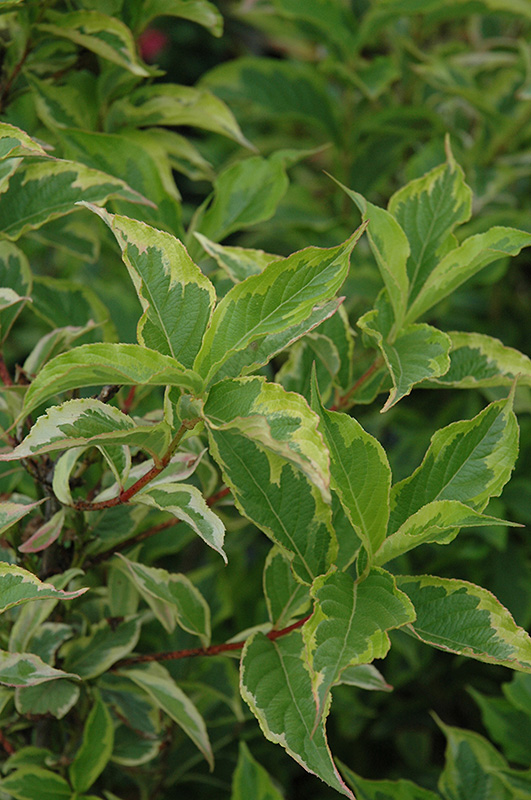Goldrush Weigela
Weigela florida 'Goldrush'
Height: 5 feet
Spread: 5 feet
Sunlight:
![]()
Hardiness Zone: 4
Description:
A magnificent spring-flowering shrub, featuring violet-deep red trumpet-shaped flowers, attractive to hummingbirds, and soft yellow and green variegated foliage; somewhat coarse and open in habit, good for general garden use; needs full sun
Ornamental Features
Goldrush Weigela is clothed in stunning clusters of violet trumpet-shaped flowers with white overtones and dark red throats along the branches in late spring. It has attractive green foliage edged in yellow. The pointy leaves are highly ornamental but do not develop any appreciable fall color. The smooth gray bark and brick red branches add an interesting dimension to the landscape.
Landscape Attributes
Goldrush Weigela is a multi-stemmed deciduous shrub with a more or less rounded form. Its average texture blends into the landscape, but can be balanced by one or two finer or coarser trees or shrubs for an effective composition.
This shrub will require occasional maintenance and upkeep, and should only be pruned after flowering to avoid removing any of the current season's flowers. It is a good choice for attracting hummingbirds to your yard. It has no significant negative characteristics.
Goldrush Weigela is recommended for the following landscape applications;
- Accent
- Mass Planting
- Hedges/Screening
- General Garden Use
Planting & Growing
Goldrush Weigela will grow to be about 5 feet tall at maturity, with a spread of 5 feet. It tends to fill out right to the ground and therefore doesn't necessarily require facer plants in front, and is suitable for planting under power lines. It grows at a medium rate, and under ideal conditions can be expected to live for approximately 30 years.
This shrub should only be grown in full sunlight. It prefers to grow in average to moist conditions, and shouldn't be allowed to dry out. It is not particular as to soil type or pH. It is highly tolerant of urban pollution and will even thrive in inner city environments. This is a selected variety of a species not originally from North America.



